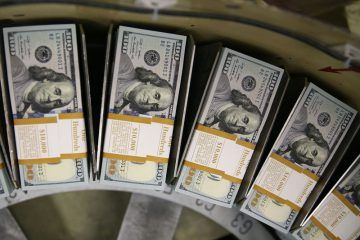
Leah Downey in Foreign Policy:
In a post-Great Recession world, monetary policy just looks different. For one thing, central bank independence is dead—but the U.S. Congress doesn’t know it yet. We could argue for hours, or days, about whether it ever really existed or when exactly it died, but suffice to say that the moment quantitative easing started, the Federal Reserve stepped out of its well-defined monetary box, and independence was no more. Central bankers know it: In a recent survey, 61 percent of former central bankers surveyed from around the world predicted that central banks would be less independent in the future.
The U.S. Congress has not acknowledged this reality. Members of Congress depend on the doctrine of central bank independence to keep the dirty business of monetary policy off their hands. The question is whether Congress will continue to ignore reality and let the Fed take on more power—and increasingly fiscal rather than just monetary—over the economy or whether it will choose to step in, reassert its political power, and get more involved. Most important of all is a question no one seems willing to ask: What might the answer to this question say about the state of U.S. democracy?
More here.
